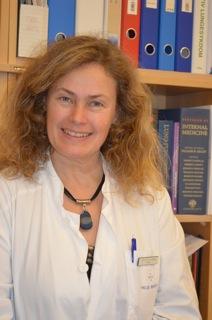Tracing the origins of respiratory illness – back generations
An international group of respiratory health experts met at the Centre of International Health to share recent results and plan future research directions, 10-13 June.

Hovedinnhold
Professor Cecilie Svanes hosted the joint meeting, involving participants from 3 international respiratory health research projects: European Community Respiratory Health Survey (ECRHS), Respiratory Health in Northern Europe (RHINE), and Respiratory Health in Northern Europe, Switzerland, Spain and Australia (RHINESSA). Svanes plays a leading role in all 3 projects.
Findings from the RHINE study show, among other things, a trans-generational effect of parental exposure to environmental triggers (smoking, pollution, etc.) on their unborn children and even grand-children. Other recent findings from the ECRHS Early Life working group suggest that there are: early life disadvantages that increase adult respiratory susceptibility; possible positive effects of early exposure to pets, such as cats; generational trends in compromised lung function, asthma and hay fever; and potential gender differences to name a few.
Borgny Lavik from the Centre for International Health (CIH) administration worked to ensure that the conference functioned smoothly and arranged for the participants to experience some unique Bergen and Norwegian experiences. These included views over the western Norwegian fjord landscape from Bergen’s highest local mountain, Ulriken, a tour of the Armauer Hansen Leprosy Museum, and traditional Norwegian food in the UNESCO heritage setting of Bryggen and on a local cruise boat.
The conference finished with delegates working to finalise an application for an EU grant proposal.
